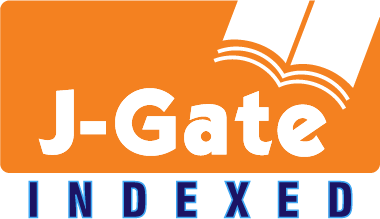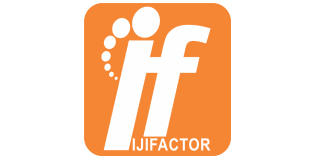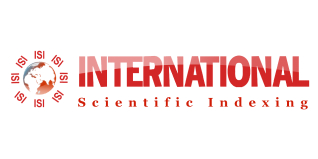Mentally ill persons are approached with stigma and families want to abandon them even in the wake of 21st century. It is a severe human right violation. However there are emerging models caring the destitute mentally ill with individual initiative and family collaboration who bring back the human right of the mentally ill person by removing stigma and caring them with dignity and worth. This paper is a case study of a rehabilitation centre at Kottayam in Kerala run by an ordinary person along with his family caring more than 300 mentally ill including children.
The objective of the study is to find out how the stigma reduction through a grass root community assistant rehabilitation model and enhance human right of the mentally ill persons. A qualitative design with case study methodology is followed.
The result shows that factors like acceptance of the persons with mentally ill as a family member calling him/her son/daughter and treating them so, allowing them the freedom of expression and interaction, exploring their innate abilities and host of others make them to cross the barriers of stigma. It gives back the human rights lost when they were thrown into the streets. The founder of the centre visits schools colleges, temples, churches and other community centres to disseminate information on mental health. The participants of such interaction program visit the rehabilitation center and understand how mental illness is just like any other chronic illness and spread the message back home. The entire process of community involvement enables to recreate a pro human right perspective towards persons with mental illness. Their dignity is regained; care and love in the centre as if in a family pitch their rights back in position. The entire process removes stigma about mentally ill persons and place them in a high position and prepare the society to own the responsibility to care these persons with cognitive deficits. Thus the care of mentally ill ultimately leads to stigma reduction and prepare the families and communities to accept and care the persons with mental illness. The entire process of stigma reduction contributes to the promotion of human rights of the mentally ill person and creates a model of right based care and rehabilitation of the persons with mental illness.
by :
Prince CP
15 February 2018
:
Journal Articles
: Volume : Volume 4 Issue : Issue 1-Feb. 2018
Self-esteem has long been considered an essential component of good mental health. It is a widely used concept both in popular language and in psychology. It refers to an individual’s sense of his or her value or worth, or the extent to which a person values, approves of, appreciates, praises, or likes him or herself (Blascovich and Tomaka, 1991). The investigator personally is interested to work with teenagers and had come across some children, who found it difficult to cope with academics due to problems like comparison between the siblings and too much expectation from the parents.
Objectives of the Study were to understand the Socio-Economic background of Respondents, to assess the level of self esteem of the Respondents, to assess the co-relation between Self-Esteem and Academic Performance and to assess the level of Self-Esteem and Academic Performance between boys and Girls. The research design of the study is descriptive in nature. The aim is to study the level of self esteem of the students with low academic performance. The Universe of the study includes, students (aged 13-15) studying in High school in the district of Serchhip and Aizawl in Mizoram and Dimapur in Nagaland and have achieved low marks (below 60%) and failed in one or more subjects would be the population for the present study. The sample would be selected from 3 private schools (15 each). The Simple Random sampling techniques of probability sampling would be used to draw out the sample. The Researcher will concentrate on collecting primary data by questionnaire methods. Keeping in mind the observation as a supportive tool while meeting them and seeing their progress reports. The secondary data will be obtained from the books, magazines, reports, school records and websites. The following tools will be used to measure the variables
Vast Majority of 75.6 percent of the total respondents do have high self esteem. The reason could be the environment where they are grown, their friends circle and also other opportunities to shine.
Parents’ income impact on self esteem via academic performance: It is argued that social class is mediated in a cultural level, which in turn determines family expectation, values and attitudes regarding education. Pearson’s correlation test was applied for the above variables. There is no significant relationship between Self-esteem and Academic Performance of the Respondents
by :
Meena Monteiro
15 February 2018
:
Journal Articles
: Volume : Volume 4 Issue : Issue 1-Feb. 2018
As pressure is added by consumers seeking to make more responsible choices and by the constraints of ever-dwindling natural resources, more companies are incorporating sustainable strategies and adopting more socially responsible practices. The top trends in the area of corporate social responsibility include increased transparency, investment in green technologies, local community and employee engagement, and recognition of economic inequality. The organisations can no longer see themselves only as profitmaking machines if they wish to survive. Companies today are giving more priority to the corporate responsibility as it is the need of the hour. The corporate is increasingly being required to align with societal norms while generating financial returns. The CSR practitioners and organisations, validate the segments like production and distribution, wealth, ethical systems, sustainable management practices by applying approaches that may be unique to the organisation. A unique and varied approach to develop CSR strategies is very useful for the development of the community and nation as a whole. KIOCL has undertaken several community oriented projects and the study revealed that it was the need of the community and it has benefitted them to a great extent.
by :
Sebastin K V, Asha Lobo
15 February 2018
:
Journal Articles
: Volume : Volume 4 Issue : Issue 1-Feb. 2018
In coastal Karnataka two hundred thousand fishing households are directly dependent on marine fishing which provides livelihood, security and minimizes the vulnerability to chronic poverty. The small-scale fisheries employing labour intensive harvesting, processing, and distribution technologies to harvest near-shore fishery resources were contributing less to the output and more to the employment. However, rapid growth of mechanization and expansion of international trade coupled with growing number of non-fishing communities in fisheries sector caused a transformation of fisheries during the past two decades. Macro level assessment of per capita income from fishing shows a declining trend during the last 10 years although the overall net domestic product in the region has been increasing. The declining resources and increasing use of coastal waters for non-fishery related activities have undermined the role of small-scale fisheries and its capacity to provide ecosystem goods and services. The restoration of small scale fishing requires a multi-pronged fishery management approach including community support and action. The recently organized stakeholder consultations with different fishing groups have evolved scope for executing collective management measures. The study is based on the outcome of a number of stakeholder consultations organized during 2016 as part of the national programme of International Collective in Support of Fish workers (ICSF) to disseminate and implement the Food and Agriculture Organization (FAO) “Voluntary Guidelines for Sustainable Small-scale Fisheries”. The study is based on expert consultations, meetings with community based organizations and stakeholder consultations. Two prominent community based organizations were consulted regarding the impact of executing the FAO guidelines. The stakeholders consultation have focused on three major action research issues such as identification of measures to minimize the negative impact of implementing FAO guidelines on small-scale fishers, restriction and gradual removal of fuel subsidy to destructive fishing practices, reducing the dependence of women on state sponsored support schemes, integration of community based management measures with state fishery regulations, mobilizing community support/social capital for discouraging un-sustainable fishing technologies. The results of the study was helpful in understanding the real issues of governance and collective action required for the implementation of common fishery management regulations such as extended closed seasons and areas, introduction of minimum mesh size, limiting fishing effort through scientific licensing policy
by :
Gunakar S
15 February 2018
:
Journal Articles
: Volume : Volume 4 Issue : Issue 1-Feb. 2018
Aakasha Ganga, Via Lactea or the Milky Way is our home in the Universe. The discovery of the telescope by Galileo Galilei had facilitated the sky watchers to notice a variety of geometrical forms in the sky. The use of photographic techniques have expanded our knowledge about galaxies. Galaxies can be grossly put into one of the 3 types: elliptical, spiral and irregular galaxies. Milky way is one among billions of galaxies present in the universe and it is spiral galaxy. Newtons law of gravitation explains the planetary motions in solar system. But to explain the motion of sun and other stars in galaxy one has to modify Newtonian gravity dynamics. Development of quantum mechanics, particle physics and the measurement of stellar velocities at unprecedented accuracies would help to unravel the mystery of the formation of Milky Way in near future.
by :
Divakara Mayya
15 February 2018
:
Journal Articles
General Article
: Volume : Volume 4 Issue : Issue 1-Feb. 2018



